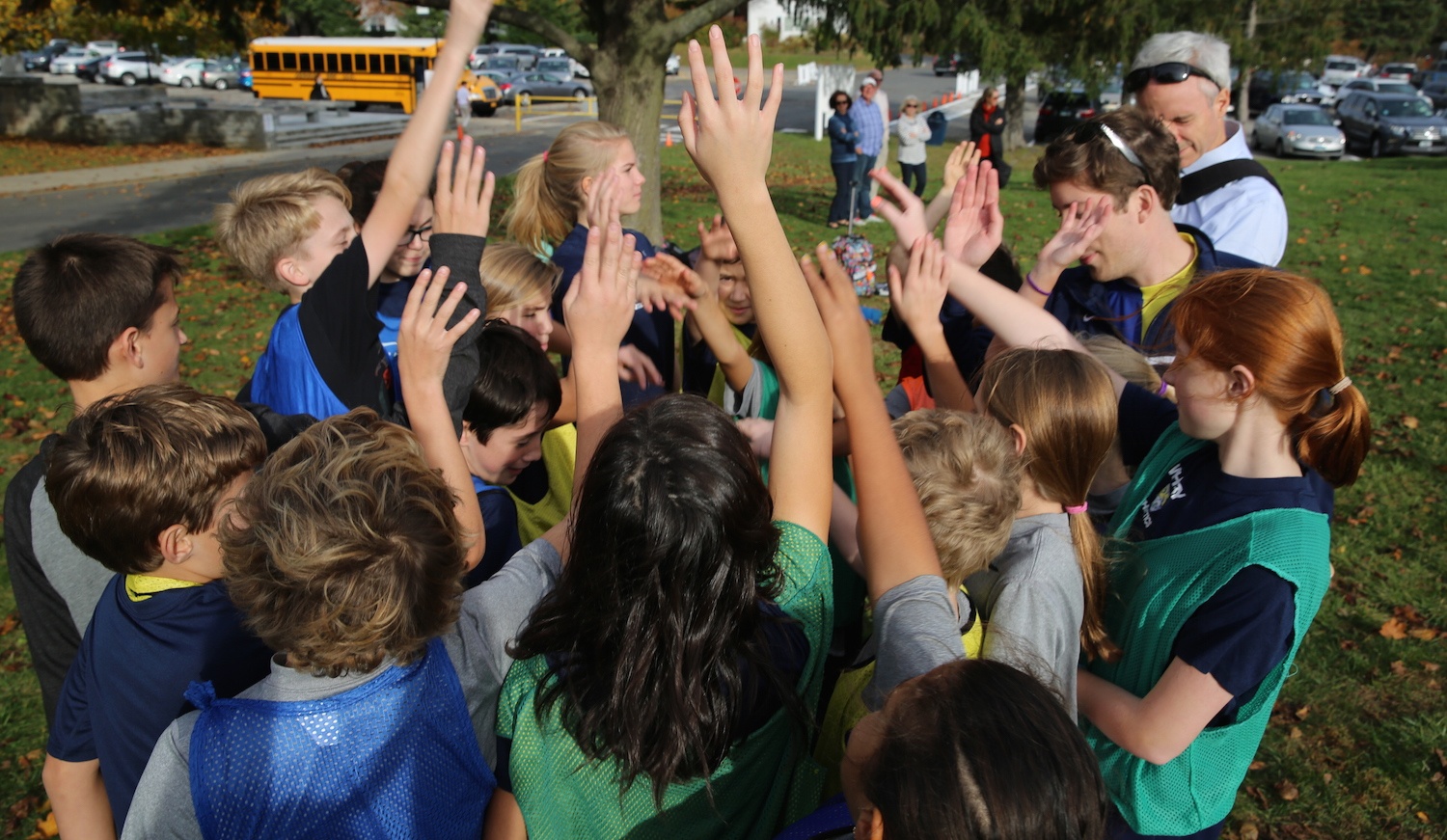My first year at Whitby was much different than what it is like now. Back in 2010, serving as the Upper School permanent substitute, my flexible role allowed me to interact with students in a variety of contexts. One week, I might have been helping students with revising paragraphs, the next day conversing with them in Spanish and the following day organizing experiments substituting in their science class.
For the last four years, my academic role in the school has been firmly rooted in the world of mathematics and most of my day is spent interacting with students in a much more narrow focus.
Embracing the opportunity to interact and shape students in a variety of angles, coaching has been an amazing way to understand, motivate and teach students outside of the classroom. Coaching cross-country, basketball, baseball and softball all have very different inherit lessons to pass on to students.

Cross-country is a sport where pure will is more important than athletic ability. Yes, it is difficult to win a race if a student is not fast, but winning a race is not the objective coached in cross-country. Instead, students are encouraged to notice their performance at the start of the season and reflect on what they can do to improve their performance each week. Students also practice the importance of giving a strong, but steady effort. In a race, the runners who start sprinting usually end up winded and gasping for air before they make it to the finish line. Giving a consistent, level effort not only helps with a runner’s endurance during a race, but it is also an important life-lesson that could apply to nearly everything we do as adults.
In basketball, students are regularly reminded that basketball is an intricate game and every student can positively contribute in a variety of ways. Many of my fifth and sixth graders feel that if they are unable to make a basket, they are a hindrance to the team, but this is far from the truth. Basketball is a team sport and some of the most valuable players are the students who help out in other ways: play aggressive defense, grab an important rebound or set a play-opening pick. Just like in the work force or a relationship or in a community, a balance is needed and in order to achieve this balance, having a variety of skills or traits within the individuals are needed and playing basketball is an excellent way for students to learn this.
One of the best life lessons fostered in playing baseball and softball is the importance of taking risks and accepting failure. Batting in baseball or softball is one of the few instances in sports where failure is more likely than success. Every season, students are reminded that some of the best baseball players in the pros successfully register a hit about thirty percent of their at-bats, so it is important for these players to think one game, or even one at-bat at a time. It is a sport where the spotlight is shining brightly and there could be a lot of pressure felt when a batter is facing a pitcher or when a fly ball is descending to a fielder. More so than other sports, more tears well up in the eyes of the students when they play baseball or softball. Playing the sport helps with accepting failure, realizing that making mistakes is just a fact of life and it also helps with students learning how to move on and reflect on what they can do to help improve their game.
All of the lessons taught in sports correlate hand-in-hand with their experiences in the classroom and ultimately help them prepare for their adult life. It is an honor to have the opportunity to help the students not just inside the classroom, but also on the court and in the field.

